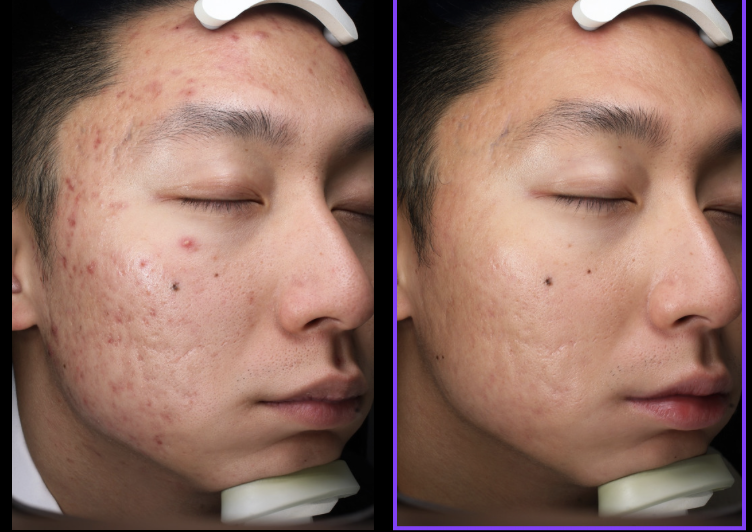Chromadermatology Specialists: Leading Dermatological Solutions in Melbourne
Chromadermatology Specialists: Leading Dermatological Solutions in Melbourne
Blog Article
Checking Out the Duty of Dermatologists in Detecting and Treating Diverse Skin Disease With Precision
The field of dermatology plays a critical duty in determining and managing a large range of skin problems that people may encounter. From typical problems like acne and dermatitis to a lot more intricate disorders such as melanoma or uncommon hereditary skin conditions, skin doctors are at the center of detecting and dealing with these problems with precision. With developments in diagnostic tools and personalized treatment techniques, dermatologists are increasingly able to customize treatments to specific clients' demands - Chromaderm Melbourne. Past the surface area of skin conditions exist interconnected factors that affect medical diagnosis and treatment end results. Recognizing the complex internet of genetic, environmental, and lifestyle aspects that contribute to skin health and wellness is important for extensive care.
Relevance of Early Discovery
Early discovery of skin problem plays a crucial function in the reliable therapy and monitoring by dermatologists. Prompt identification of skin concerns permits punctual intervention, which can prevent the development of problems and reduce possible complications. Skin doctors count on their knowledge to identify subtle adjustments in the skin that may show underlying troubles, such as skin cancer cells, eczema, dermatitis, or psoriasis. By carrying out complete assessments and utilizing analysis devices like biopsies or dermoscopy, skin doctors can precisely identify a variety of skin disease.
Finding skin cancer in its very early stages considerably boosts the prognosis and increases the probability of effective treatment outcomes. Emphasizing the value of very early discovery highlights the critical duty that dermatologists play in promoting skin wellness and wellness.
Advanced Diagnostic Strategies
Making use of cutting edge technology and specific knowledge, dermatologists employ sophisticated analysis methods to precisely identify and examine various skin problems. Among the main devices in the skin doctor's diagnostic toolbox is dermoscopy, a non-invasive strategy that enables the exam of skin structures not visible to the naked eye. By multiplying the skin, dermoscopy aids in the very early detection of cancer malignancy, basal cell carcinoma, and other skin cancers. In addition, skin specialists may use confocal microscopy, a high-resolution imaging technique that allows them to imagine skin at a cellular degree without the need for a biopsy. This innovation is particularly practical in diagnosing inflammatory skin disease and monitoring treatment effectiveness.
Additionally, molecular screening has reinvented the diagnosis and therapy of skin conditions by making it possible for skin doctors to evaluate genetic mutations connected with problems such as melanoma and hereditary dermatoses. Through techniques like polymerase domino effect (PCR) and next-generation sequencing (NGS), dermatologists can provide tailored treatment plans based on a person's specific hereditary account. These advanced diagnostic devices boost the accuracy and efficacy of dermatological care, inevitably leading to much better outcomes for patients.

Tailored Therapy Strategies
With a thorough understanding of skin conditions attained through sophisticated diagnostic methods, skin specialists customize therapy strategies to deal with private client requires properly. This customized technique is important in making sure optimal outcomes for people with diverse skin conditions. By thinking about variables such as skin type, clinical background, way of life behaviors, and treatment choices, skin doctors can establish therapy plans that are specifically customized per patient.
Tailored therapy techniques may involve a mix of treatments such as topical medicines, oral drugs, minimally intrusive treatments, or way of living adjustments. For example, clients with acne might profit from a program that consists of topical retinoids, dental prescription antibiotics, and in-office treatments such as chemical peels or laser treatment. On the various other hand, individuals with eczema might call for a therapy strategy concentrated on gentle skin care regimens, creams, topical corticosteroids, and recognizing and preventing triggers that intensify their problem.

Handling Chronic Skin Disease
Skin specialists play a crucial duty in creating long-lasting management techniques for persistent skin conditions, making certain effective care and improved top find here quality of life for individuals - Chromaderm Melbourne. Handling persistent skin problem needs a detailed strategy that surpasses simply treating signs. Dermatologists are trained to not only identify these problems properly yet also to develop individualized treatment strategies that attend to the underlying causes and variables adding to the skin condition's perseverance
In handling persistent skin conditions, dermatologists typically employ a mix of treatment methods tailored to each client's specific needs. This may consist of topical medicines, dental medications, lifestyle modifications, and procedural interventions such as laser treatment or phototherapy. Normal follow-up appointments are vital to check the condition's development, readjust treatment as needed, and supply continuous support and education and learning to people.
Additionally, skin specialists play a pivotal role in equipping patients to take an active function try this website in managing their skin problem. By informing people regarding their condition, therapy alternatives, and safety nets, dermatologists assist people make notified choices and cultivate healthy and balanced skin habits that contribute to long-lasting skin wellness and overall health.
Collaborative Treatment Techniques
In the alternative monitoring of skin problem, collaborative care strategies involving different medical care specialists are crucial for maximizing patient results. Skin doctors usually operate in multidisciplinary groups to give comprehensive treatment that resolves the varied requirements of people with skin problem. By teaming up with medical care doctors, allergists, cosmetic surgeons, and other experts, skin doctors can make certain that individuals receive incorporated and collaborated treatment tailored to their specific problem.
Collective treatment methods likewise reach client education and learning and support. Dermatologists can function carefully with psychologists, registered nurses, and pharmacologists to inform individuals about their skin problem, therapy options, and safety nets. This interdisciplinary method empowers clients to proactively participate in their care and make informed choices concerning their health.
Additionally, collaborative care permits for a more all natural analysis of people, taking right into account not only the physical signs and symptoms of their skin problem but additionally the mental and social effect it might have. By taking into consideration the more comprehensive implications of skin problem, medical care specialists can develop extra personalized treatment plans that attend to the one-of-a-kind demands of each person. you can try this out Eventually, collective treatment methods play a critical duty in supplying top notch, patient-centered care for people with varied skin problem.
Conclusion
Finally, skin specialists play a vital function in identifying and treating a large range of skin problem with accuracy. Via very early discovery and advanced analysis strategies, they are able to supply tailored treatment strategies for optimal results. By taking care of persistent skin disease and carrying out collaborative care methods, skin specialists guarantee comprehensive and efficient care for their clients. Their competence and devotion contribute substantially to the total health and well-being of people with diverse skin issues.
Skin specialists depend on their proficiency to acknowledge subtle changes in the skin that might suggest underlying issues, such as skin cancer cells, eczema, psoriasis, or dermatitis. By magnifying the skin, dermoscopy help in the very early discovery of melanoma, basal cell carcinoma, and other skin cancers.With a detailed understanding of skin conditions achieved with advanced analysis methods, skin specialists customize treatment techniques to address private client needs efficiently. Dermatologists are trained to not just identify these problems precisely yet likewise to develop personalized treatment plans that address the underlying aspects and causes adding to the skin condition's perseverance.
In taking care of persistent skin conditions, skin doctors frequently use a combination of treatment methods customized to each patient's details requirements.
Report this page